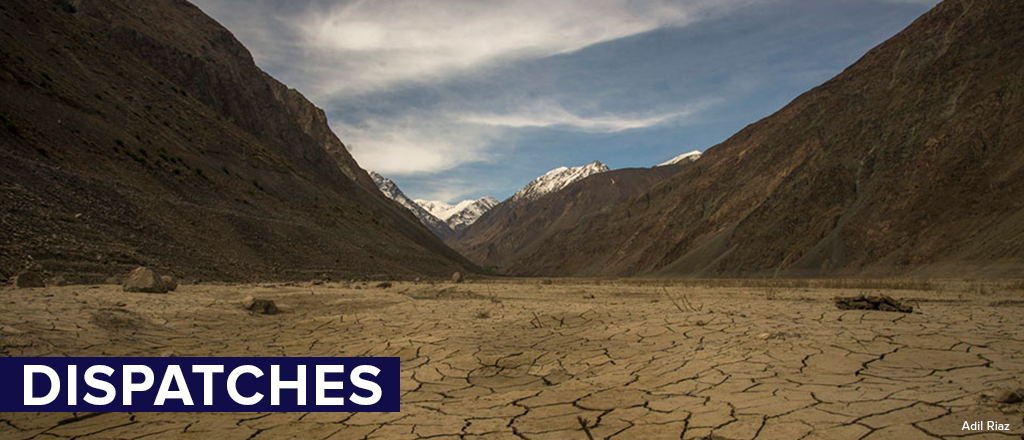

Humayoun Akram is PhD Candidate in Water Science and Policy Program at the University of Delaware
17.11.2021
South Asia is considered one of the most at-risk regions from the impacts of climate change. This threat is evident from the global climate risk classification based on extreme climate events (droughts, floods, heatwaves, etc.) in the past twenty years. In fact, all the countries of the South Asian region are classified within the top twenty nations that are most at risk from the impacts of climate change. Pakistan ranks eighth in the list, right after Bangladesh.
The change in precipitation and temperature will negatively impact the living standards of the people inhabiting the region. About 800 million people (more than half of the total South Asian population) live in areas that will be moderate to severely impacted by climate change by 2050 (in the business-as-usual scenario). Therefore, it is not surprising that we see serious efforts to mitigate the negative consequences of climate change. Special departments within the government have been created during the last decade to foresee the impacts of climate change within the regional countries. For instance, in the case of Pakistan, solid financial frameworks are proposed by the national government for implementing mitigation and adaptation measures.
These initiatives are encouraging, but we cannot move far if regional countries act only within their borders. It is, no doubt, important to design the country-specific actions and implement them. But, as the consequences of climate change are grave for the region, effective mitigation cannot occur without regional knowledge sharing or collaborating. The reason is that the countries share the common river basins, which support massive agricultural populations and share a common history that dates back to hundreds of years. Therefore, there is more in common between the regional countries and the resulting possibility of mutual collaboration.
An example of cooperation, often cited in the international community, is the regional water treaties signed between the countries to share waterways. These treaties resulted because of the economic importance of water for the river-sharing nations and as a means of conflict prevention. After signing these treaties until the start of the twenty-first century, they have served their purpose but this cooperation has not resulted in broader peace or joint environmental conservation efforts. The Indus water treaty, for instance, despite recent disagreements, has primarily resulted in the effective collaboration between the two nations for the management of internal waterways. Likewise, the Ganges water-sharing agreement between India and Bangladesh was considered a breakthrough at the time of signing.
However, at the time of enactment, issues of climate change were not on the horizon. There is mounting evidence suggesting the discontent between nations on the water sharing rules. In the Indus water treaty, signing parties often show reluctance for mutual data sharing and seek international arbitration for dispute resolution. On the other hand, in the Ganges water-sharing agreement signed in 1996, inaccurate projections of future water flows seriously undermined the water allocation, adding to the discontent between the nations for water-sharing mechanisms.
Climate change shows the inherent human inability to predict the consequences of economic development for future generations accurately. At the time of fossil fuel discovery and utilization, for example, no one thought it could cause adverse climatic effects at the global level. Likewise, authors of water treaties did not envision the impossible scenario of reduced or erratic flows across the borders. The resulting policies adopted at that time made economic systems that were dependent on waters from the sharing rivers. Now the very systems in place that brought economic development can increase the potential conflict not only across borders but also within borders. Therefore, it is essential to engage multiple perspectives at different levels of governance.
Moreover, Pakistan also shares the water of the Kabul River with the neighboring war-torn nation of Afghanistan. After the recent withdrawal of international forces and the formation of the new Afghanistan government, the current priority of the present national government will be rebuilding the economy. At the same time, however, the country faces serious challenges from the impacts of climate change. Therefore, the Kabul waterway can either build discontent or bring lasting prosperity and peace along the western border of Pakistan. Meanwhile, by involving different stakeholders from all levels, proper engagement for allocating transboundary water of Kabul River can result in deeper ties and broader prosperity for the people.
A more significant proportion of the population of the South Asian countries depends on agriculture for their livelihoods. Therefore, irrigation water supplied by transboundary rivers plays a vital role in the regional economies. If water sharing is not done correctly in the future, it can result in serious economic consequences. The experience of water-sharing agreements highlights the importance of mutual flexibility and coherent joint actions between the regional nations for collective environmental and economic developments. Although governments recognize the grave consequences of climate change for the region and admit the importance of mutual collaboration for resolving the climate crisis, due to a deep political divide, the usual regional cooperative organizations like SAARC have historically not played an effective role in reaching climate-related agreements.
However, there are politically independent institutions that can fill the void and engage all players. The South Asian Cooperative Environmental Programme (SACEP), established in 1981, can play an effective role in this regard. This institution predates the SAARC (formed in 1985) and is considered politically neutral. It can provide necessary cross-border engagement and effective knowledge sharing. Especially for the case of broader international engagement with the new Afghan government, it can play a more effective role. This organization can use water sharing between the nations as a springboard to further engage the countries for collective adaptation and mitigation measures. Moreover, effective adaptation strategies implemented in some specific countries can readily be tested in another country by SACEP.
The looming devastating impacts of climate change also provide the unique opportunity for building lasting cooperation between the nations. Because the negative consequences of climate change will physically impact this region and result in massive unrest and poverty for all the countries, therefore, it is imperative to leverage this situation and build cooperation amongst regional countries. This collaboration can bring broader peace and economic prosperity for the populations stuck in poverty since their independence.
Disclaimer: The views expressed in the article are of the author and do not necessarily represent the institute’s policy.
